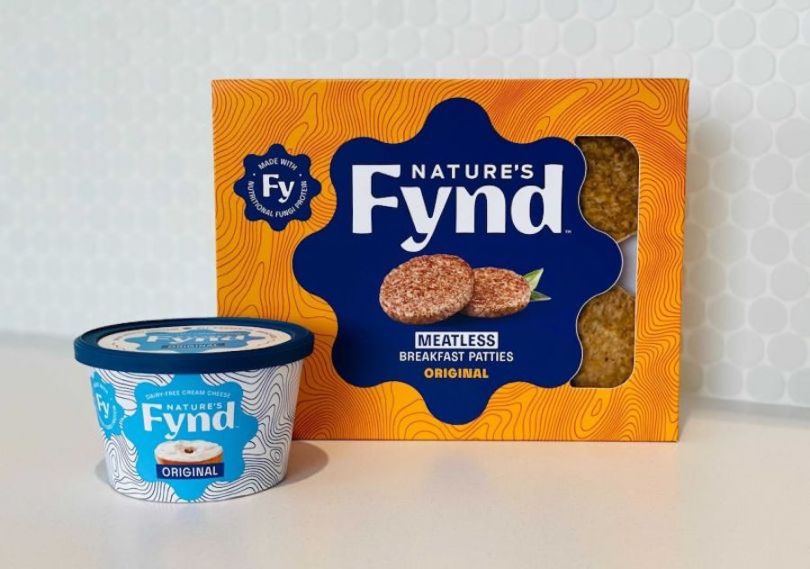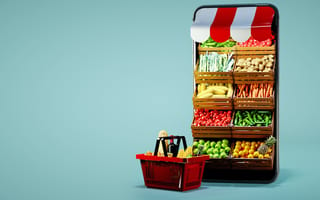Food may seem to be a pretty straight-forward pursuit, but the evolving foodtech industry is anything but. Between shifting consumer behavior, pandemic-related supply chain vulnerabilities and an overall increased focus on sustainability, this sector has had to innovate a lot in the last couple of years — and investors have taken notice.
According to recent PitchBook data, the global foodtech industry raised nearly $40 billion in venture funding across some 1,358 deals in 2021, doubling deal values year over year. And as we settle into 2022, the leading segments identified in the report — namely online grocery shopping, robots and alternative proteins — are poised to keep heating up.
E-grocers got a lion’s share of the money, raking in more than $18 billion across 102 deals. On-demand grocery delivery startup JOKR hit unicorn valuation shortly after launching in NYC, and Instacart recently hit a whopping $39 billion valuation. Other services like Hungryroot, Imperfect Foods and Misfits Market also bagged big rounds of funding over the last year to keep up with surging demand amid the pandemic. Farm-focused startups like GrubMarket and MilkRun pulled in fresh capital, too.
Investors also appear to have taken a renewed interest in the delivery of more niche ingredients. Weee!, a Bay Area startup that delivers food from Asian and Latinx grocery stores, closed on a massive $315 million Series D round last March. And Umamicart, a newbie that specializes in Asian food, was recently featured among Built In NYC’s Future 5 up-and-coming startups after it raised $6 million in seed funding, joining more established brands like Bokksu, which closed on a $22 million round last month. The smaller meal kit market also saw quite a bit of action, with rising stars like Tovala and Good Eggs bringing in big growth investments of their own last year.
The largest foodtech deal of 2021 was a $3 billion investment in Chinese grocery app Xingsheng Selected by Sequoia Capital China, according to PitchBook. Although overall funding in the space accelerated last year, the report noted that the velocity slowed toward the end of the year, raising questions about whether the trends seen will maintain momentum into 2022. But if popular Chicago “convenience store of the future” Foxtrot’s $100 million raise or DoorDash’s recent foray into “ultra-fast” delivery is any indication, the grocery delivery space appears to be continuing its hot streak into 2022.
Other high-growth areas in the larger foodtech space are ghost kitchens and automation (aka robots). Popular ghost kitchens like Taster, Curb and Hangry all got venture capital last year, according to PitchBook. Then, just a couple weeks ago, Lunchbox, a NYC tech startup that aims to better support these digital-first eateries, closed on a $50 million round, with co-founder and CEO Nabeel Alamgir calling them the “next wave” of the restaurant tech revolution.
“The changes in food service are going to be permanent.”
Meanwhile, food-prep and delivery-focused robots also had a moment last year, too. Picnic, a Seattle startup that created a pizza-making robot, raised a $4.2 million Series A over the summer, joining the bevy of other players looking to streamline the repetitive tasks that often bog down meal prep and delivery. LA-based Coco, which rolled out its first fleet of tele-operated robots in 2020, raised a $36 million Series A in August (and expanded into Austin earlier this month), just as major brands like Grubhub and sweetgreen dipped their own toes in the burgeoning food automation pool.
“The changes in food service are going to be permanent. While dine-in experiences will come back, the idea that commercially prepared food is always in a kitchen attached to a dining room is obsolete,” Picnic’s CEO Clayton Wood told Built In in July. “The change brings some pain in the short run as every industry transformation does, but the result will be a healthier, more successful and more productive food service industry that will be ready to meet the needs of consumers in the 21st century.”

Beyond just prep and delivery-related tech, bio-engineered food was especially hot in 2021. Nature’s Fynd, a Chicago startup that makes alternative meat and dairy products using a special protein called Fy, led the pack with a $350 million Series C led by SoftBank’s Vision Fund 2, following other big investments in startups like Motif FoodWorks and Meati Foods — all of which are focused on creating meat and dairy alternatives.
All told, PitchBook says alternative proteins saw triple-digit growth in 2021, propelled by “healthy and environmentally conscious eating trends.” And Amy Huang, a university innovation specialist at the nonprofit Good Food Institute, says this shift toward alternative meat can be attributed in part to the increased concerns over public health amid the pandemic, calling animals “disease-carrying vectors.”
“By removing animals from our foods, we are really increasing the resilience of our global and public health systems. I think that dialogue is starting to be elevated,” Huang told Built In in an interview last year. “Shifting our society toward alternative proteins is at the center of ensuring that we have a habitable planet for centuries to come.”
Jeremy Porr contributed reporting to this piece.




